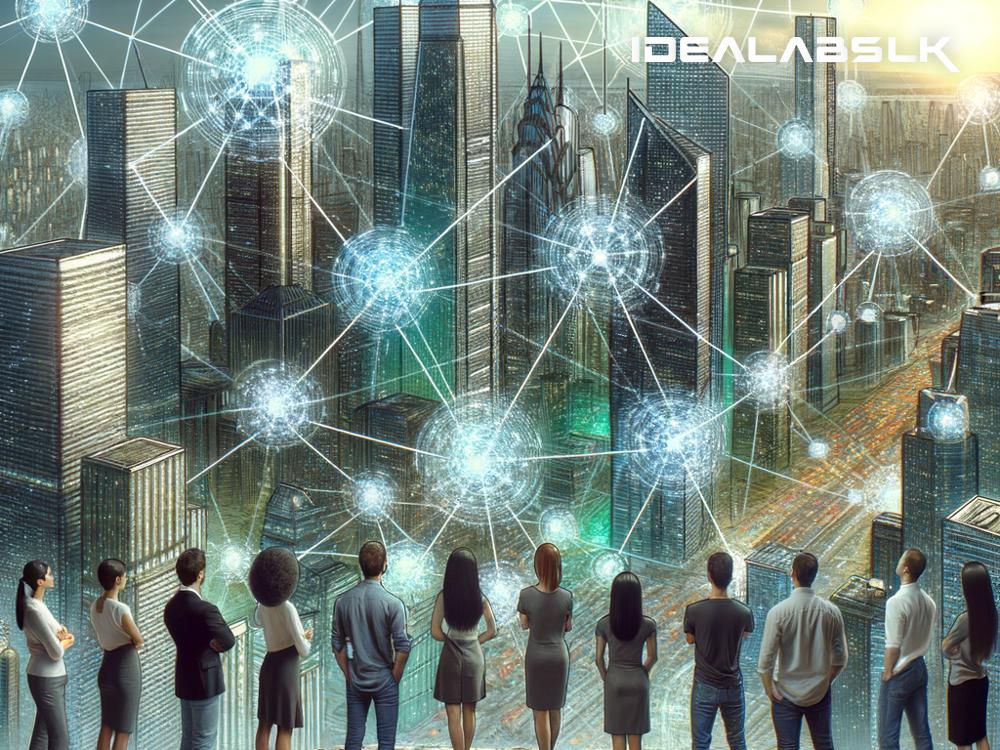Title: Unlocking the Future: How Blockchain Will Revolutionize Public Trust
In today's fast-paced world, trust is more valuable than gold. From banking to online shopping, every transaction we make hinges on a fundamental level of trust. But with rising concerns over data breaches, fraud, and misinformation, maintaining public trust has become a Herculean task. Here’s where blockchain technology, the backbone of cryptocurrencies like Bitcoin, steps into the spotlight with the potential to redefine the very essence of trust in our society.
Understanding Blockchain: A Primer
Imagine a ledger, but not just any ledger. This one is virtually incorruptible, transparent, and decentralized, meaning it doesn’t rest in the hands of any single entity. That's blockchain for you. Each "block" in the chain contains a number of transactions; every time a new transaction occurs, a record of that transaction is added to every participant's ledger. What makes blockchain revolutionary is its ability to ensure the integrity and truthfulness of the data it holds, without the need for a trusted third party.
Decentralizing Trust: A Paradigm Shift
Traditional systems rely on central authorities like banks, governments, or corporations to facilitate and validate transactions. This centralized model places immense power in the hands of a few, creating bottlenecks and points of failure where trust can be compromised. Blockchain disperses this power among its network, offering a more democratic and trustworthy model. By ensuring that transactions are transparent, immutable, and secure by design, blockchain technology can institutionalize trust at a level previously unimaginable.
Blockchain and Public Trust: A New Era
-
Government and Democracy: Imagine a world where voter fraud is a thing of the past, and public records are open and unforgeable. Blockchain can secure voting systems, ensuring each vote is anonymous yet verifiable, reinvigorating trust in democratic processes. Similarly, it can revolutionize how government records are maintained, making them transparent and accessible, eliminating red tape and corruption in one fell swoop.
-
Finance and Banking: The financial sector stands to gain immensely from blockchain’s promise of secure, transparent transactions. By cutting out middlemen, blockchain can reduce fraud, lower transaction costs, and speed up the processing of transactions. This can make financial systems more inclusive, bringing banking services to the unbanked populations around the world and fostering economic empowerment.
-
Supply Chain Transparency: With blockchain, every product’s journey can be recorded, from its origin to the end consumer. This transparency can revolutionize consumer trust by providing undeniable proof of the authenticity and ethical sourcing of products. Imagine knowing the exact farm where the coffee beans in your morning brew were picked — blockchain can make this a reality.
-
Healthcare Records: Blockchain can also secure personal health records, providing a seamless way for healthcare providers to access patient history while ensuring data integrity and patient privacy. This not only streamlines healthcare delivery but also deepens trust between patients and healthcare providers.
Challenges on the Horizon
Despite its immense potential, the widespread adoption of blockchain faces hurdles. Scalability issues, the energy consumption of mining activities, and regulatory uncertainties are significant challenges. Moreover, for blockchain to become a trusted foundation in society, it requires a cultural shift in how we perceive and trust in decentralized systems.
The Way Forward
As we look towards the future, it is clear that blockchain technology holds the key to rebuilding and enhancing public trust across various facets of our lives. By championing transparency, security, and fairness, blockchain can create a more trustworthy and efficient society. However, realizing this vision will require collaborative efforts from governments, industries, and communities to address the challenges and embrace the potential of this transformative technology.
In conclusion, while blockchain is often synonymously mentioned with cryptocurrencies, its potential impact goes far beyond. By serving as the new bedrock of trust, blockchain technology harbors the power to fundamentally reshape our institutions, economies, and daily lives. As we step into this brave new world, one thing is certain: the future of public trust looks more secure, transparent, and inclusive, thanks to blockchain.

